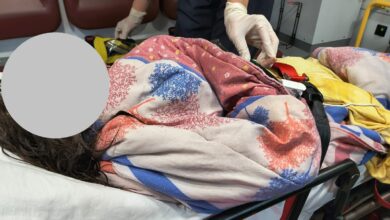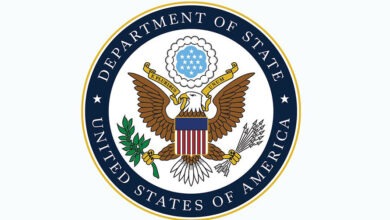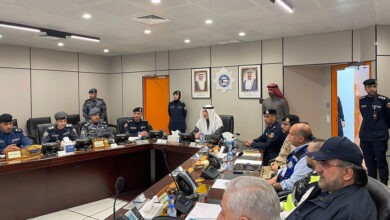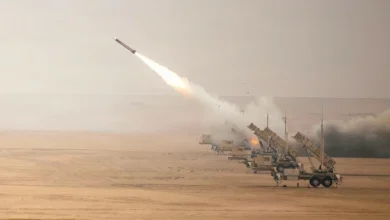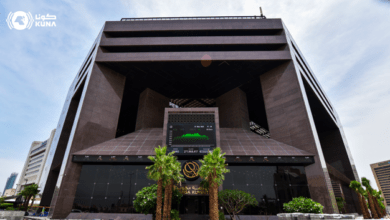Scars of Invasion, Essence of Liberty, Price of Freedom

By Reaven D’Souza
Executive Managing Editor
On Friday, Kuwait solemnly marks the 34th anniversary of that dark day on 2 August,1990 when the country’s flame of freedom was snuffed out by marauding Iraqi forces. The invasion and subsequent seven-month long occupation witnessed horrendous acts of brutality, wanton destruction of the country’s oil infrastructure, its facilities and amenities, as well as rampant looting of government and private properties. The shroud of darkness that descended over Kuwait was finally dispelled only by the liberation of Kuwait in February 1991.
Today, the country is a manifestation of what can be achieved through determination and perseverance of a people who clawed back their freedom from an abyss, when the very existence of their nation was at stake. Despite Kuwait’s relatively quick return to normalcy after liberation, the harrowing experience of the invasion and its aftermath has etched an ineradicable scar on the psyche of those that lived through that period.
Thirty four years since the invasion may be a fleeting moment in the timeline of a nation, and for many people in Kuwait today, the brutal invasion and consequences of the seven-month long occupation of Kuwait are a distant memory, or events narrated by their parents. An entire generation has now grown up that had no direct experience of those agonizing seven months in Kuwait’s past. For many of them, the entire tragic episode is nothing more than pages in history textbooks. They have grown up in an environment of complete freedom and have come to take this concept for granted. To them freedom is a given, it is something they do not think about twice as they go about their lives.
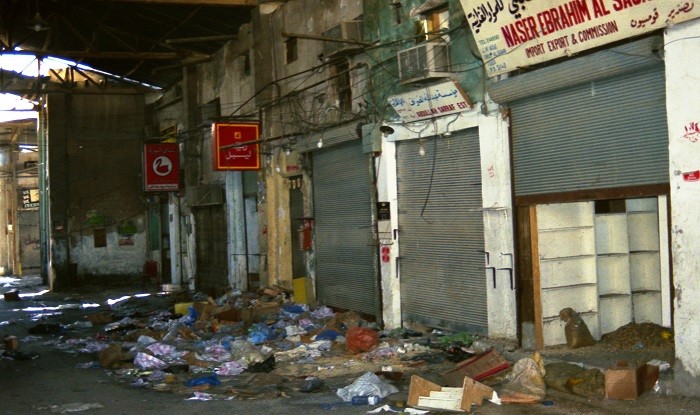
But for those who lived through the horrors and trauma of the invasion, that dark period is an experience they would like to forget, but cannot. The pain and suffering they endured is something they would like to erase from their memories, but cannot. Physical and mental wounds from the invasion may have healed, but the scars inflicted on their persona are indelible, run deep, and remain very real. These are the people who still remain fully appreciative of the immense value and significance of freedom, and they are the ones most aware that freedom is poignantly felt and most deeply desired when we no longer have it.
For them, every 2 August serves as a reminder that freedom is a priceless commodity and that its availability and continuity cannot, and should not, be taken for granted. Each anniversary of the invasion is a cue that freedom is not ‘free’, and the price to protect, preserve and continue enjoying the fruits of freedom, is constant and unwavering vigilance. The country and people who lived through the invasion have a moral duty to ensure that the new generation are made fully aware that everlasting vigilance is the essence of sustaining freedom.
This watchfulness should not only be directed against threats to freedom from beyond our borders but also against internal encroachments on our freedom. These intrusions, which often begin as subtle, indiscernible biases and bigotries on the freedoms and human rights of others, often go unnoticed or overlooked by most citizens who fail to flag them as rights violations that deserve to be condemned.
Over time these small discriminatory practices by a few misguided people build up and become everyday occurrences that society becomes immunized to and tends to ignore. But failing to acknowledge and protest these violations leads to the grinding and eroding of the moral fiber of a nation, and eventually it will lead to a situation where we wake up one day and realize that along with those whose freedoms we failed to protect, we too have lost our freedoms.
Apart from teaching a new generation on the need to be eternally watchful against both external and internal threats to liberty, we also have to inculcate in them the need to uphold as sacrosanct the civil and human rights of all people living in the country. Sustaining and perpetuating real freedom for Kuwait can only come about when we take responsibility to ensure that the rights of everyone is protected at all times.
A country, and by extension its people, is judged not just by the level of liberty that its citizens enjoy, but also by the freedom it grants to others residing in their midst. It is judged as much by the actions it takes, as by what it fails to take, to safeguard the rights and liberties of everyone. Freedom, which is the most fundamental of human rights, should not be a privilege granted to a select few, it should be a right imparted to all people in the country, irrespective of their race, religion, or gender.
Protecting and preserving the freedom of everyone promotes unity of all people in the country, and this unity is undeniably vital to help prevent external and internal intrusions. The second of August each year drives home this point. We live in a highly volatile region. Wedged between two powerful countries, Kuwait has had its share of border disputes with its larger neighbors over the centuries.
Prior to the invasion of 2 August 1990, Kuwait and Iraq had shelved their decades-old border dispute, as Iraq engaged in a devastating war with Iran in the 1980s. Kuwait remained an ally of Iraq throughout this war, providing moral and material support in the form of financial loans for Iraq’s military purchases. However, with the end of that war in 1988, an economically drained Iraq, burdened by humongous debt from its eight-year conflict, demanded that Kuwait write-off the loans and provide more financial assistance.
When Kuwait understandably refused to comply, Iraq launched a ground and air invasion under the unfounded pretext that Kuwait had for years been using its technically superior drilling techniques to expropriate Iraqi oil from its border areas, and demanded due compensation. The rapid onslaught by the invading troops on 2 August took Kuwait by surprise and the country was overrun, annexed and soon proclaimed as the 19th province of Iraq.
However, Kuwait’s strong standing and influence in the global arena helped the country muster a swift condemnation by the international community. Less than four days after the invasion, the United Nations Security Council (UNSC) demanded the immediate and unconditional withdrawal of Iraqi forces from Kuwait. It also imposed a string of stringent embargoes against Iraq, thereby curtailing Baghdad’s ability to sustain its economy and maintain its occupation of Kuwait.
In late November of 1990, following Iraq’s refusal to heed repeated UN warnings to roll back its invasion, the UNSC authorized the use of “all necessary means” to force Iraq out of Kuwait, if its troops did not withdraw from Kuwait by 15 January, 1991. By mid-January, when Iraq failed to comply with the UN ultimatum, and it was apparent that it had no intention of retreating from Kuwait, an UN-Coalition force led by the United States launched Operation Desert Storm on17 January, 1991.
The offensive began with a ‘shock and awe’ aerial bombardment campaign that targeted and devastated Iraqi defenses. The six-week long Desert Storm ended with a 100-hour ground offensive that led to the liberation of Kuwait on the morning of 26 February, 1991. The war, waged at immense cost, resulted in extensive damage to military and civilian infrastructure in Iraq and tens of thousands of casualties, again, largely on the Iraqi side.
Today, Kuwait is once again a free nation. However, to preserve the freedom we once lost, but gratefully regained, we need to be eternally watchful of both external and internal aggressions on our freedom.








